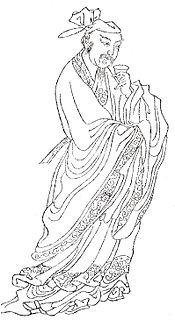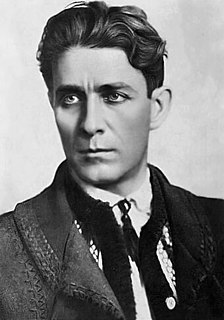A Quote by Cesare Pavese
There is no finer revenge than that which others inflict on your enemy. Moreover, it has the advantage of leaving you the role of a generous man.
Related Quotes
An enemy, Ender Wiggin," whispered the old man. "I am your enemy, the first one you've ever had who was smarter than you. There is no teacher but the enemy. No one but the enemy will tell you what the enemy is going to do. No one but the enemy will ever teach you how to destroy and conquer. Only the enemy shows you where you are weak. Only the enemy tells you where he is strong. And the rules of the game are what you can do to him and what you can stop him from doing to you. I am your enemy from now on. From now on I am your teacher.
A sincere acquaintance with ourselves teaches us humility; and from humility springs that benevolence which compassionates the transgressors we condemn, and prevents the punishments we inflict from themselves partaking of crime, in being rather the wreakings of revenge than the chastisements of virtue.
If asked how to cope with a great host of the enemy in orderly array and on the point of marching to the attack, I should say: "Begin by seizing something which your opponent holds dear; then he will be amenable to your will." Rapidity is the essence of war: take advantage of the enemy's unreadiness, make your way by unexpected routes, and attack unguarded spots.
Is it stupidity or is it moral cowardice which leads men to continue professing a creed that makes self-sacrifice a cardinal principle, while they urge the sacrificing of others, even to the death, when they trespass against us? Is it blindness, or is it an insance inconsistency, which makes them regard as most admirable the bearing of evil for the benefit of others, while they lavish admiration on those who, out of revenge, inflict great evils in return for small ones suffered? Surely our barbarian code of right needs revision, and our barbarian standard of honour should be somewhat changed.
If I wish to wrest an advantage from the enemy, I must not fix my mind on that alone, but allow for the possibility of the enemy also doing some harm to me... If I wish to extricate myself from a dangerous position, I must consider not only the enemy's ability to injure me, but also my own ability to gain an advantage over the enemy.







































